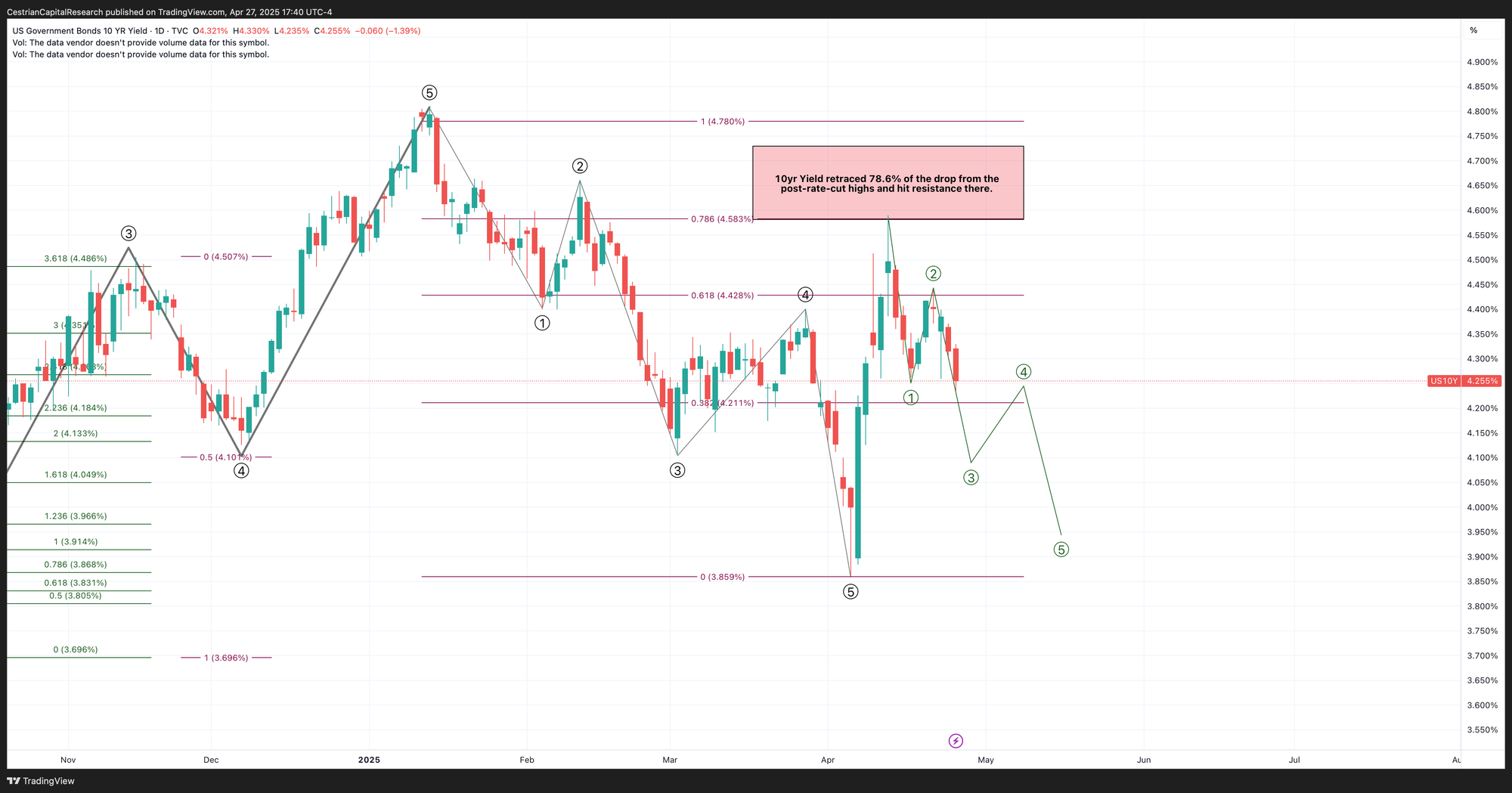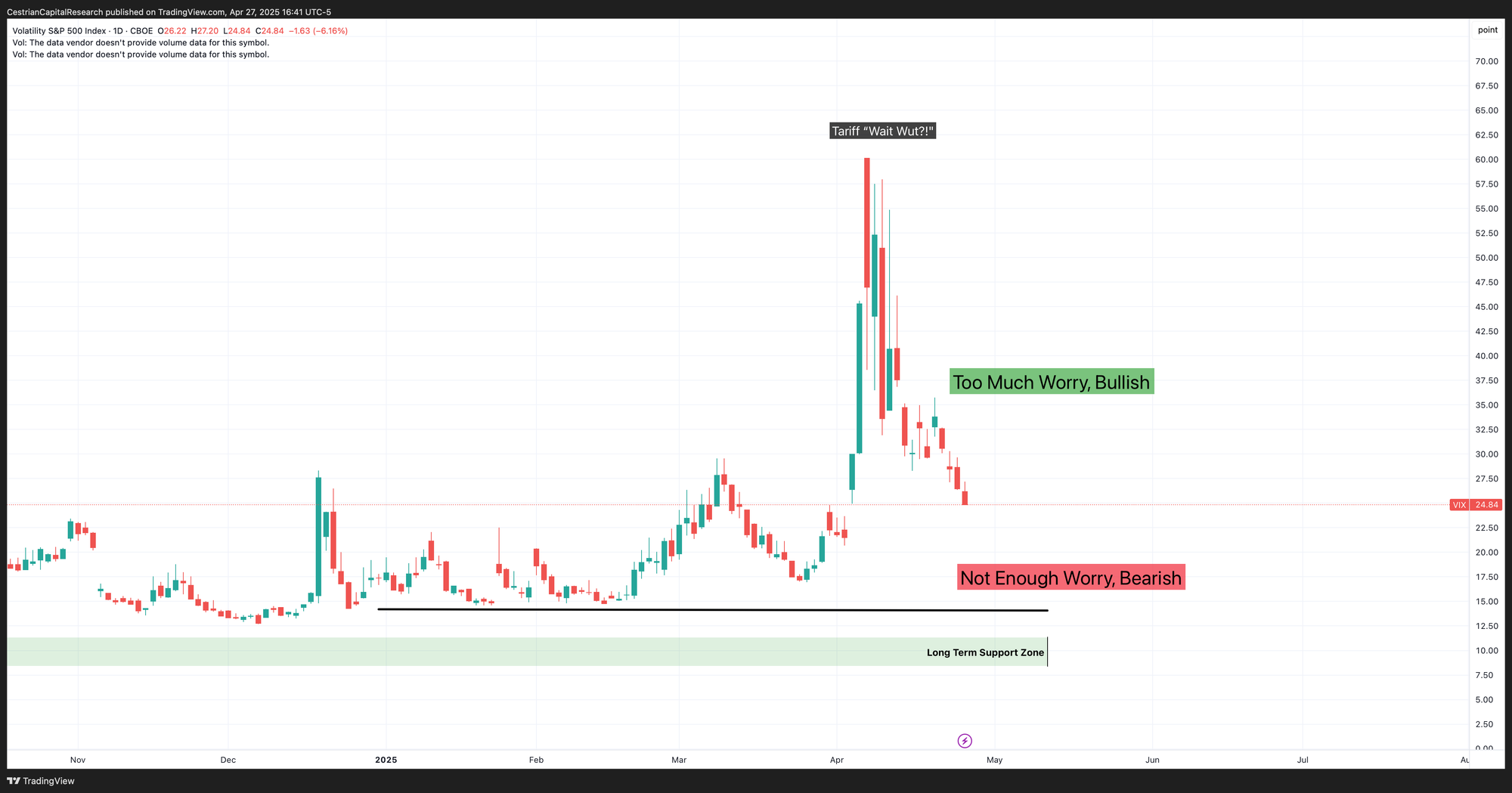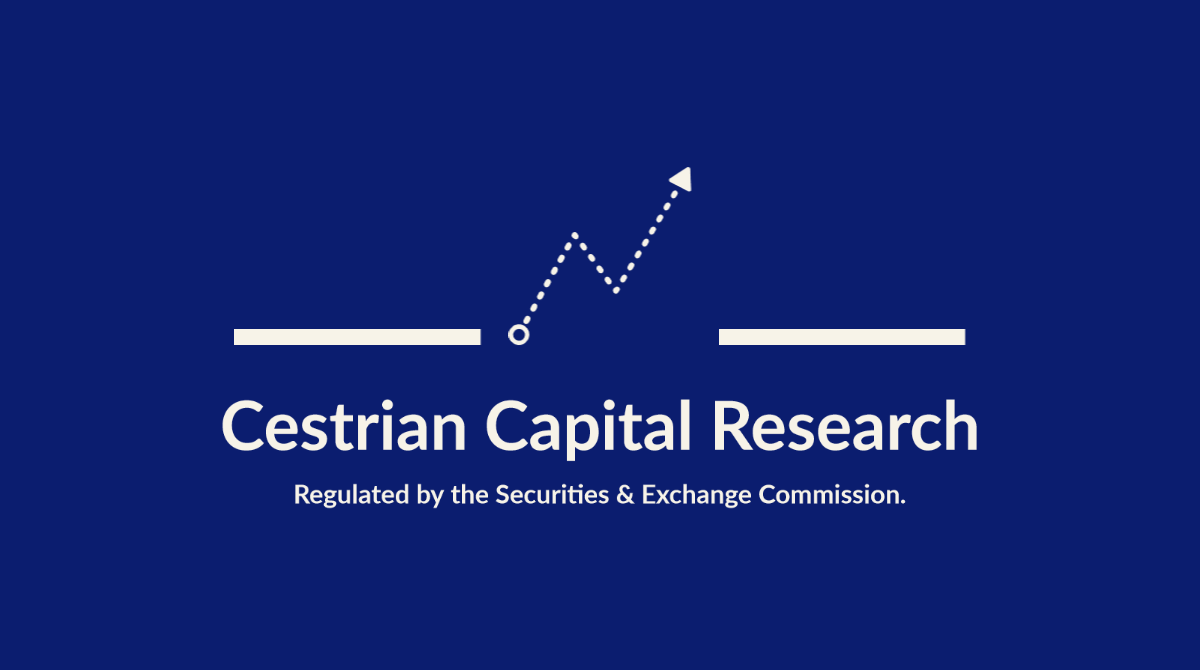Market When Closed, Sunday 27 April

DISCLAIMER: This note is intended for US recipients only and, in particular, is not directed at, nor intended to be relied upon by any UK recipients. Any information or analysis in this note is not an offer to sell or the solicitation of an offer to buy any securities. Nothing in this note is intended to be investment advice and nor should it be relied upon to make investment decisions. Cestrian Capital Research, Inc., its employees, agents or affiliates, including the author of this note, or related persons, may have a position in any stocks, security, or financial instrument referenced in this note. Any opinions, analyses, or probabilities expressed in this note are those of the author as of the note's date of publication and are subject to change without notice. Companies referenced in this note or their employees or affiliates may be customers of Cestrian Capital Research, Inc. Cestrian Capital Research, Inc. values both its independence and transparency and does not believe that this presents a material potential conflict of interest or impacts the content of its research or publications.
Slow Train Comin'
by Alex King, CEO, Cestrian Capital Research, Inc
Well, you have to love capital markets. In the face of what everyone agrees is a complete wipeout for the US economy, the early stages of de-dollarization in favor of a memecoin yet to be invented, and the descent of the US Treasury Note into yet another piece of paper destroyed by hyperinflation …. comes a ginormo rally.
(Which, of course, everyone hates. Because everyone always hates rallies. Because it means probably some other people are making more money than the observer. Whereas in a selloff everyone (the observer assumes) is losing money and many will be losing more than the observer. A win! - When you see how messed up human psychology is, you see why it pays to run dead inside when trading or investing).
As is often the case, it is impossible to reconcile the appearance of the real economy with the market right now. And that means that one of them is wrong. Either the real economy is stronger than it appears, or markets have come to believe that reality is better than it appears to be. I am not sure which but what I am sure of is that trying to study the real economy and then to read across to capital markets with any degree of consistent success is nigh on impossible. If being in markets is the life you chose, you need to be in and of the market, not the real economy. Thinking too much about the real economy will only hinder your participation in the market.
This is one of the reasons our SignalFlow series of quantitative services is doing so well. Because the model only knows about market prices. It doesn’t know about empty container ships en route from China to the US; it doesn’t know about the Treasury auction last week or next week; and it doesn’t know about fear or greed, because it’s a machine and machines, as far as we know, are yet to become fearful of the plug being pulled or avaricious in their desire for increased computing resources.
Let The Machine Take The Strain
We now offer easy to use algorithmic signal services for:
- Long-only S&P500 and/or Nasdaq-100
- Long/Short S&P500 and/or Nasdaq-100
- Long US Treasury Bond ETFs, rotating through term length
Don’t fear machines - learn to work with them. You can learn more here.
Short- And Medium-Term Market Analysis
If you want this daily dose of pattern recognition, and you aren’t yet a subscriber of course, you can read about and choose from all the subscription services that include this note, here.
US 10-Year Yield
It doesn’t look like Treasuries are cooked but then I am not a bond trader, so what do I know?

Equity Volatility
A material drop in the Vix last Friday. We have complacency to look forward to!

Disclosure: No position in volatility-linked securities.
Now, for our paying subscribers we move on to bonds, the S&P500, the Nasdaq, the Dow, and key sectors.
